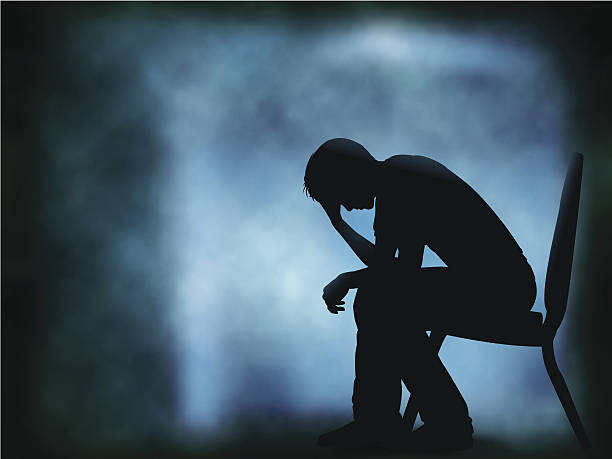Introduction
Depression is a mood disorder that causes a persistent feeling of sadness and loss of interest. Also called major depressive disorder or clinical depression, it affects how you feel, think and behave and can lead to a variety of emotional and physical problems. You may have trouble doing normal day-to-day activities, and sometimes you may feel as if life isn’t worth living.
1. Causes of Depression
Depression can result from a combination of biological, psychological, and social factors. Common causes include:
Genetics: Family history of depression increases risk.
Brain chemistry: Imbalance in neurotransmitters like serotonin, dopamine, and norepinephrine.
Hormonal changes: Due to pregnancy, postpartum, thyroid problems, menopause.
Life events: Trauma, abuse, loss of a loved one, or major life changes.
Chronic illness: Conditions like diabetes, cancer, Parkinson’s disease.
Substance abuse: Alcohol or drug misuse can contribute to or worsen depression.
Personality: Low self-esteem or being overly dependent or self-critical.
2. Symptoms of Depression
Symptoms must last at least 2 weeks for a diagnosis. They include:
Emotional symptoms:
- Persistent sadness or emptiness
- Loss of interest or pleasure in activities (anhedonia)
- Feelings of guilt, worthlessness, or hopelessness
- Irritability or frustration
Cognitive symptoms:
- Trouble concentrating or making decisions
- Memory issues
- Thoughts of death or suicide
Physical symptoms:
- Fatigue or low energy
- Sleep disturbances (insomnia or oversleeping)
- Appetite or weight changes
- Physical aches and pains without a clear cause
3. Treatment of Depression
Treatment is tailored to the severity and cause of depression. Common options include:
A. Psychotherapy
Cognitive Behavioral Therapy (CBT): Most effective, helps identify and change negative thought patterns.
Interpersonal Therapy (IPT): Focuses on improving relationships.
Psychodynamic therapy: Explores unconscious patterns.
B. Medications
Antidepressants:
- SSRIs (e.g., fluoxetine, sertraline)
- SNRIs (e.g., venlafaxine, duloxetine)
- Tricyclic antidepressants
- Atypical antidepressants (e.g., bupropion, mirtazapine)
Always prescribed by a healthcare provider. Effects may take 2–4 weeks.
C. Lifestyle changes
- Regular exercise
- Healthy diet
- Adequate sleep
- Avoiding alcohol/drugs
- Social support from friends or family
D. Other treatments
Electroconvulsive Therapy (ECT): For severe or treatment-resistant depression.Transcranial Magnetic Stimulation (TMS): Non-invasive brain stimulation.Ketamine therapy (in some cases): Rapid-acting antidepressant effect.
Key Facts
- It is not the same as occasional sadness or grief.
- It can affect mood, sleep, appetite, energy, focus, and even physical health.
- Anyone can get depression — children, teens, adults, and older people.
- it is treatable with therapy, medication, and support.
- Without treatment, depression can Last for weeks, months, or even years.
- Affect work, school, and relationships.
- Lead to thoughts of self-harm or suicide.
Treating depression naturally can be helpful, especially for mild to moderate cases. These methods are often used alongside or instead of medication (based on your doctor’s advice). Here are the most effective natural ways to treat depression:
1. Regular Exercise
Boosts mood by increasing endorphins and serotonin.
Even a 30-minute walk, yoga, or dancing 3–5 times a week can help.
2. Healthy Diet
Eat foods rich in omega-3 fatty acids (like fish, walnuts), vitamin D, B vitamins, and magnesium.
Avoid processed foods, excess sugar, and caffeine.
3. Good Sleep Habits
- Go to bed and wake up at the same time daily.
- Avoid screens before bedtime.
- Try calming routines (like warm baths or herbal teas).
4. Mindfulness & Meditation
Practices like deep breathing, guided meditation, and yoga reduce stress and negative thoughts.
Apps like Headspace or Insight Timer can help you start.
- Natural Supplements (Talk to a doctor first!)
Omega-3 fatty acids found in fish oil capsules.
Vitamin D especially helpful if you’re low (common in winter).
Magnesium helps calm the nervous system
Sunlight or Light Therapy
15–30 minutes of sunlight daily helps increase vitamin D and regulate mood.Light therapy boxes are useful for winter depression (Seasonal Affective Disorder).
7. Social Connection
- Talk to friends or family regularly.
- Join a support group or participate in community activities.
8. Journaling or Creative Expression
Write down your thoughts or practice art/ express emotions.
Helps reduce emotional buildup and bring clarity.
9. Limit Alcohol and Drugs
These can worsen depression and interfere with natural mood balance.
Important Note:
If symptoms are severe or lasting more than 2 weeks, it’s important to talk to a doctor or therapist. Natural methods help, but clinical depression often needs professional care.
Type of Therapy What It Does
CBT (Cognitive Behavioral Therapy) Helps identify and change negative thoughts and behaviors.
Interpersonal Therapy (IPT) Focuses on improving communication and relationships.
Behavioral Activation Encourages engaging in positive activities.
Psychodynamic Therapy Explores unconscious thoughts and past experiences.
Strategy Benefit
Exercise (30 min/day) Boosts mood through endorphins and serotonin.
Sleep hygiene Regulates mood and energy.
Healthy diet Supports brain function (e.g., omega-3s, B-vitamins).
Limit alcohol/drugs Prevents worsening of symptoms.
Mind-Body Practices
These help reduce stress and improve emotional control.
Meditation / Mindfulness
Yoga Deep breathing Tai chi or Qi Gong Reduces cortisol (stress hormone) and helps regulate mood.
Social Support
- Talking to family, friends, or support groups.
- Reduces feelings of isolation and helps build resilience.
- Light Therapy (especially for Seasonal Affective Disorder – SAD)
- Use a light box (10,000 lux) for 20–30 minutes each morning.
- Helps regulate melatonin and serotonin levels.
